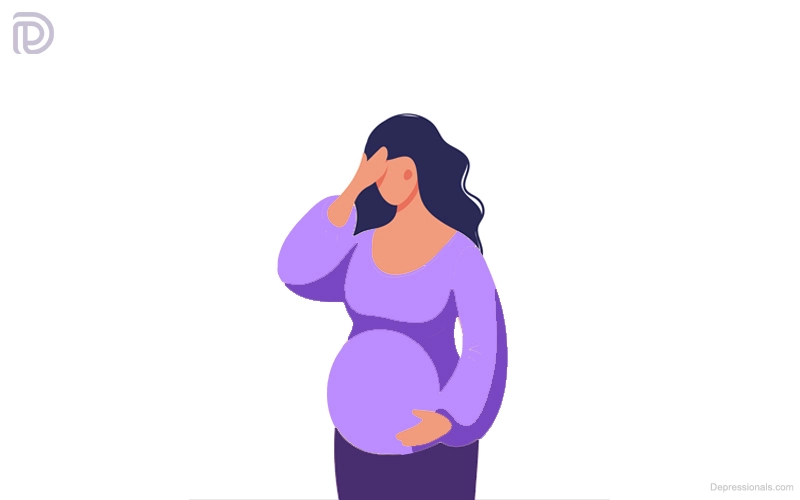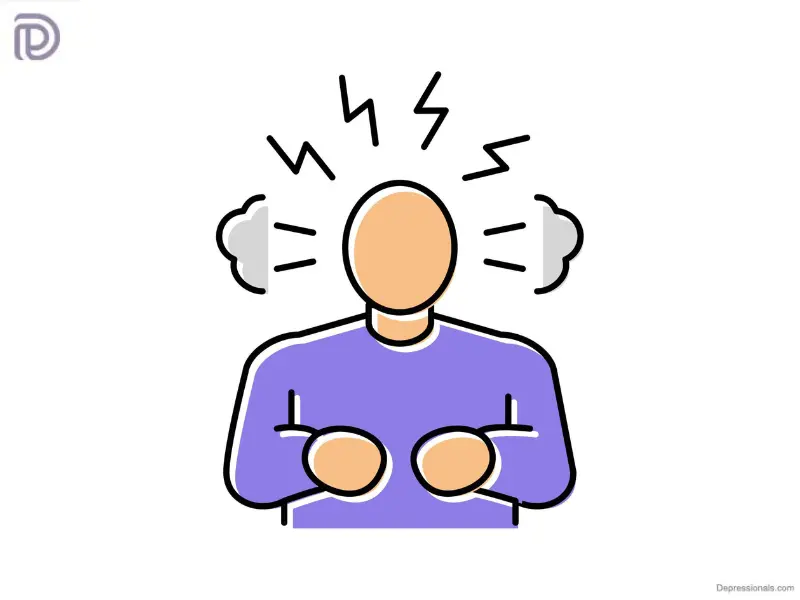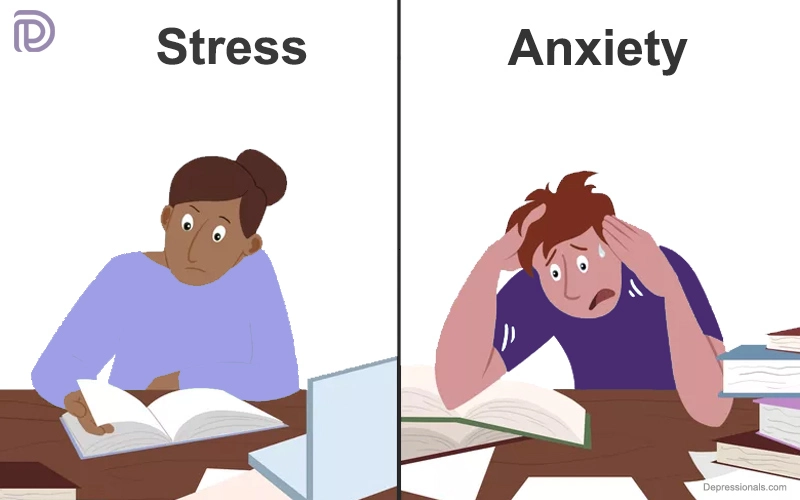Some women take more stress during pregnancy. When you’ve just spent hours online researching birthing options, including Lotus, Lamaze and water, you can’t get to sleep. Work feels overwhelming. Your mind stresses over what you can and cannot eat. (Beefsteak: yay or nay?)
Is anyone here stressed?
Because of the changes in your body (hello, hormones! ), the unknowns, and all the responsibilities, it’s you.
Guess what? You shouldn’t worry about it (or become more stressed). You are more at risk for certain complications if you are under some type of stress.
How can stress affect your pregnancy?
Stress is common during pregnancy due to the many changes that take place during this time. The way you live, the way you feel and the way you look are changing. It may be a relief to see these changes, but you may experience new stress as a result.
A high level of stress over time can lead to heart disease and high blood pressure. The stress of pregnancy can lead to a premature birth or a low-birthweight baby (weighing less than 5 pounds, 8 ounces) during pregnancy. It is more likely that a baby will suffer health complications if it is born too soon or too small.
Causes of stress during pregnancy
Here are some of the main reasons women experience stress during pregnancy. Among them are:
- fear of losing the baby
- Fear of the delivery process
- Nausea, fatigue, mood swings, backache, and nausea are common physical changes during pregnancy
- During your maternity leave, you can assist your employer in making necessary preparations
- Concern about caring for the baby
- Raising a child can be financially stressful
And feeling stressed about feeling stressed is always frustrating.
Related: Separation Anxiety Disorder
Types of stress
There are different types of stress.
Life is filled with stress, and it isn’t always bad. You’re anxious to be a great parent, and you will be one when your baby is born and you’re pregnant.
Your heart rate may increase if you are under a deadline at work or if you have a dispute with your partner. Yet they don’t typically cause your baby long-term concern. Stress is something that needs to be dealt with, but if you don’t dwell on it, you’ll be okay.
Chronic stress (and life in general) causes more concern during pregnancy. Such stress increases the chances of low birth weight and premature birth.
You feel this way because your body is in ‘fight-or-flight’ mode. Your body produces stress hormones, affecting the way your baby copes with stress.
Some of the most serious stressors for you and your baby are as follows:
- Losing a job or your home, a family member’s death, or a divorce are major life changes
- Hardships with long-term effects, such as financial issues, health issues, abuse or depression
- Unexpected traumatic events, like hurricanes and earthquakes
- Being in a minority group exposes one to racism on a regular basis
- Pregnancy stress, including fears surrounding labor, the health of the baby, and caring for the baby
There may be post-traumatic stress disorder (PTSD) in those who have experienced disasters. The risk of premature birth or low birth weight is higher for them. Those who suffer from this can speak to their doctor or therapist for help – they can connect them with resources.
Read: Financial Stress
What does research say about stress during pregnancy?
Stress can manifest in your body in the form of headaches, insomnia or overeating.
Baby can be affected as well.
Which risks are specifically associated with pregnancy and your baby?
Preeclampsia
We want to address preeclampsia since it comes up often – and fear of it can cause stress.
It has been shown that pregnant women with high blood pressure are more likely to develop preeclampsia. Stress is not necessarily the cause of long-term hypertension, so don’t ever think that you caused preeclampsia by feeling stressed. Stress can increase blood pressure for a short period of time.
Furthermore, chronic hypertension does not always cause preeclampsia.
A pregnancy complication called preeclampsia damages your organs and blood pressure, which could lead to an early delivery.
Approximately 5 percent of pregnant women develop preeclampsia because of stress. Neither high blood pressure nor preeclampsia is inevitable consequences of stress.
Related: Pica in Pregnancy
Miscarriage
Prenatal stress is linked to miscarriage risk, according to a 2017 review of studies. A study found that women exposed to psychological stress or severe negative life experiences are twice as likely to suffer an early miscarriage.
According to the same study, workplace stress is linked to miscarriage, highlighting how critical it is to work with your employer and make adjustments. Those who work night shifts may particularly need to make adjustments.
Furthermore, the review notes that healthcare providers tend to downplay the stress of the risk that can cause in pregnancy, possibly to reassure pregnant women and prevent making their lives even more stressful. There is no doubt that these providers are on to something: Miscarriages are extremely rare after 6 weeks – around the time that most women confirm they are pregnant.
Related: Anxiety During Pregnancy
Premature birth and low birth rate
Stress has been linked to preterm births (birth before 37 weeks of pregnancy) according to a small study.
Learning disabilities and developmental delays are more common in preterm babies. Chronic health issues, such as heart disease and high blood pressure, are more prevalent in adults.
There is also a correlation with low birth weight (less than 5 1/2 pounds).
On the other hand, premature infants are born every day, and the majority of them do just fine. In general, you should avoid risk factors in pregnancy – such as stress – as much as you can (or get treatment), since the fewer the risk factors, the more likely the pregnancy will succeed.
Check: Depression During Pregnancy
Effects of stress on your child after birth
It is unfortunate that sometimes the effects of prenatal stress manifest many years later.
Based on a 2012 study, suggests that children suffering from prenatal stress may have a higher incidence of attention deficit hyperactivity disorder (ADHD). The results of a 2019 study suggest teenagers are more likely to develop depression.
When your baby comes, you’ll likely be faced with a whole new set of worries.
Whenever you can, sneak in more sleep and focus on healthy eating when you are stressed caring for your infant. Allow your significant other to care for your baby while you do something for yourself, such as take a walk, journal, or meet with a friend. Do not feel guilty about turning away too many visitors or prioritizing your child over a clean kitchen.
Read: Perinatal Depression
How to reduce stress during pregnancy
Fortunately, this doesn’t have to be the case. Help is available for stress relief during pregnancy. Try these tips to help you and your baby:
1. Talk with someone you trust
Another pregnant woman maybe your partner, best friend, doctor or therapist. Join an online or in-person mom’s group. If you don’t reach a solution right away, venting and feeling heard are so valuable.
2. Ask your network for help
Don’t be afraid to ask for help even if it isn’t what you’re used to. You might be surprised by how willing your friends, family, co-workers, and neighbors are to help. Make sure you accept their help if they ask.
If you need help creating a baby registry, making freezer meals, or finding a crib, you can ask.
3. Be mindful
Meditation apps or prenatal yoga could be used for this purpose. Breathe deeply, calming your mind with each exhalation. Think about a mantra that can center you. Image what life would be like with an infant. Pay attention to the little things in your life. Keep a journal. Relax with guided imagery.
When your mind is racing, all of these ways will help you slow down.
4. Keep healthy
It’s all about rest and exercise: the good ol’ staples. Sleep earlier than usual or take a nap. Take a brief prenatal yoga class or swim or walk to reduce the impact on your body.
5. Consider your food
Sure, you’re probably hungry or need to eat right now. Pregnancy cravings are also real, as is stress eating. However, you should also ensure your diet is (relatively) balanced and healthy.
Drink lots of water and avoid as much sugar as possible. Eat breakfast every day.
Related: 12 Simple Ways to Reduce Stress
6. Know the facts
There are many fears associated with pregnant women, particularly those who are pregnant after loss. Miscarriages become less likely with every passing week, and we are more unlikely to suffer one after 13 weeks.
Take a break from your computer when you need to (yes, you!). If you spend hours researching, you’ll only become more stressed.
Consult your doctor if you have concerns. They can offer you reassurance and help tailored to your specific needs and circumstances.
7. Listen to music
You can lower your body’s stress hormone cortisol with just 30 minutes of listening to music. If you must commute to work, take a break from the stress.
8. Feel the feels
A good laugh is a good medicine. Read a lighthearted novel or watch the latest romantic comedy. Enjoy a laugh with your closest friend. Feel free to cry if you are feeling down. Crying is one of the best stress-relieving methods.
9. Pamper yourself
Take a warm bath (but not hot). Let your partner massage your feet or get a prenatal massage. Pregnancy aches can be quickly alleviated with these quick fixes – and they can also be effective stress relievers.
10. Slow it down
Don’t be so hard on yourself. Even if you want to do it all, you may want to get rid of a few tasks from your list or ask someone else to complete them. It’s okay to ask your partner to serve as a gatekeeper and say “no” for you if you have trouble saying “no”.
11. Practice and plan
You can take birthing and newborn care classes at your hospital. Discover what to expect and the resources available in your hospital’s labor and delivery unit.
You will feel better knowing what you’d like in advance, and the medical professionals will be able to see you on your big day.
12. Watch your stress levels
Do not hesitate to contact your doctor as soon as you feel overburdened. Your doctor can provide therapy and treatment for depression and anxiety.
Read: Stress Management Techniques
The takeaway
Feeling stressed during pregnancy is normal – it’s normal, and the stressors women experience during pregnancy are not typically harmful to mom or baby.
However, chronic stress can be harmful. Your health is affected – whether or not you are pregnant – as well as the development of the baby.
Stress can be kept at bay in a number of ways. Spend some extra time on yourself without feeling guilty. Keeping yourself and your baby healthy by incorporating stress relief can make the days a bit easier and a bit smoother.






I’m not sure why but this web site is loading extremely slow for me. Is anyone else having this problem or is it a issue on my end? I’ll check back later on and see if the problem still exists.|
Hi there! I know this is kinda off topic however , I’d figured I’d ask. Would you be interested in trading links or maybe guest authoring a blog article or vice-versa? My website covers a lot of the same topics as yours and I think we could greatly benefit from each other. If you’re interested feel free to send me an e-mail. I look forward to hearing from you! Great blog by the way!|
I don’t commonly comment but I gotta admit thankyou for the post on this perfect one : D.
Its like you read my mind! You appear to understand so much about this, like you wrote the e-book in it or something. I believe that you can do with some p.c. to power the message house a little bit, but instead of that, that is great blog. An excellent read. I will definitely be back.